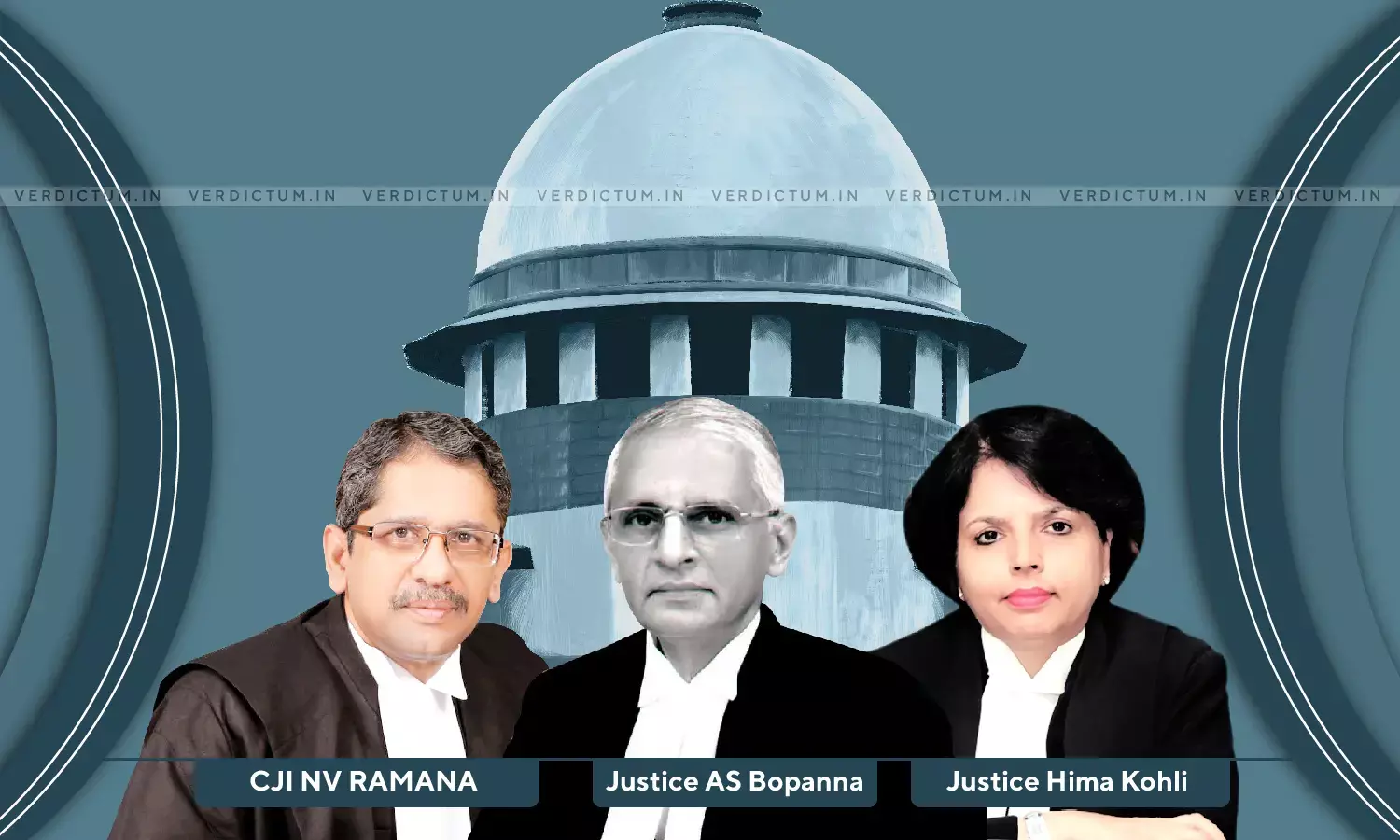Section 138 Of NI Act – Standard Of Proof For Rebutting Presumption Of Recoverable Debt Is Preponderance Of Probabilities: Supreme Court

A three-judge Bench of CJI NV Ramana, Justice AS Bopanna, and Justice Hima Kohli has held that when a cheque is drawn out and relied upon by the drawee, it will raise a presumption that it is towards a consideration which is the legally recoverable amount and such a presumption is rebuttable by proving to the contrary.
The Court further held, "The onus is on the accused to raise a probable defence and the standard of proof for rebutting the presumption is on preponderance of probabilities."
Senior Advocate Mr. Ranji Thomas and Advocate Mr. V.N. Raghupathy appeared for the Respondents and Advocate Mr. S.N. Bhat appeared for the Appellant before the Supreme Court.
An appeal was preferred before the Apex Court assailing the judgment of Karnataka High Court which had allowed the appeal of the Respondent and had set aside the judgment of acquittal passed by the IIIrd Additional Civil Judge and JMFC in favor of the Appellant.
The Appellant was convicted and sentenced by the High Court to pay a compensation of Rs. 4,00,000/- within four months. He was also sentenced to simple imprisonment for a period of six months and further ordered to pay a fine of Rs. 5,000/- to the State in default to undergo simple imprisonment of a period of 15 days.
In this case, both the Appellant and Respondent were known to each other and the latter had advanced a loan of Rs. 3, 75, 000/- to the former. The Respondent had filed a private complaint under section 2(d) read with Section 200 of CrPC against the Appellant. It was alleged that the Appellant had committed an offence under Section 138 of Negotiable Instruments Act.
It was further alleged by the Respondent that on presentation of cheque issued by the Appellant, the same was returned due to insufficient funds in the bank account of the latter.
It was argued by the Appellant that the Respondent had assaulted and threatened him and by force obtained his signatures on blank papers which were being misused. For this, the Appellant had also lodged a complaint that trial of which was also held, however, the Respondent was acquitted and the judgment had attained finality.
The Apex Court noted that the legal aspect relating to presumption arising in law when a cheque is issued, is to be noted at the threshold. In this context, the Court further made a reference to the case of K.Prakashan vs. P.K. Surendran where it was held that the initial burden is placed on the complainant to discharge.
Further, the Court added that the Respondent had tendered evidence relating to the cheque being issued and had discharged the initial burden.
"Much is made about the respondent having presented the cheque during February 2004 to assume that he would not have waited that long if the cheque was really dated 12.12.2003 and was issued earlier. Such an assumption would not be justified when, in fact, the cheque is dated 12.12.2003 and was presented within its period of validity," the Court observed.
Additionally, the Bench opined, "The date of presentation of the cheque is of no consequence provided it is presented within its validity period."
"What needs to be noted is the defence that had been put forth before the learned Magistrate to defeat the case of the respondent herein, so as to consider whether such contention of the appellant can still be considered as a probable defence," the Court held.
Furthermore, the Bench noted, "The defence sought to be put forth relating to the cheque and other documents having been obtained by force, cannot be accepted as a probable defence when the respondent successfully discharged the initial burden cast on him of establishing that the cheque signed by the appellant was issued in his favour toward discharge of a legally recoverable amount."
"In the light of the other circumstances established by the respondent, it would indicate that the respondent had discharged the burden of proving that the transaction had actually taken place. To rebut the same, the very case put forth by the appellant cannot be accepted as probable defence since the said aspect had already been considered in a separate proceeding (C.C.No.6318/2004) and the respondent had been acquitted in the said proceedings," the Court held.
In the light of these observations, the Court dismissed the appeal and upheld the impugned judgment of the High Court.
Click here to read/download the Judgment

